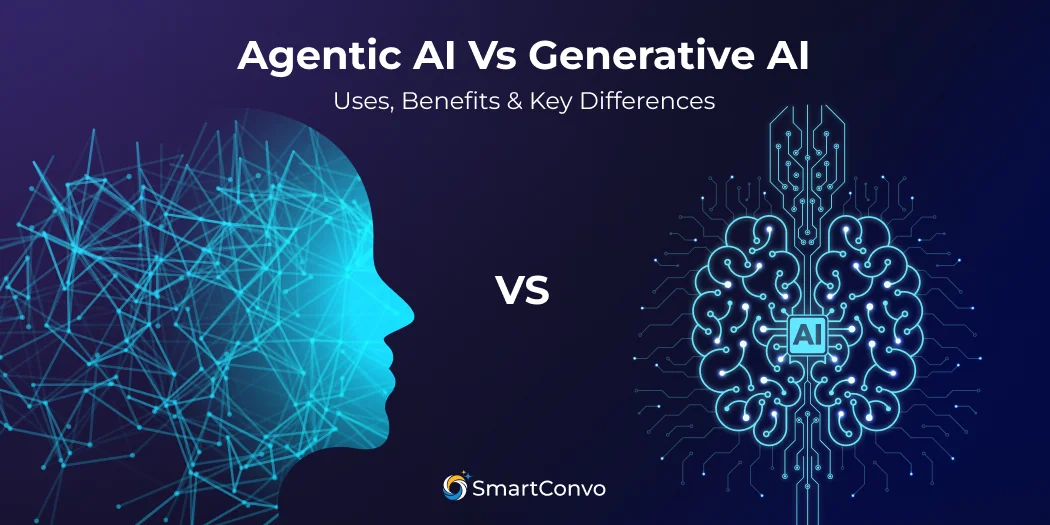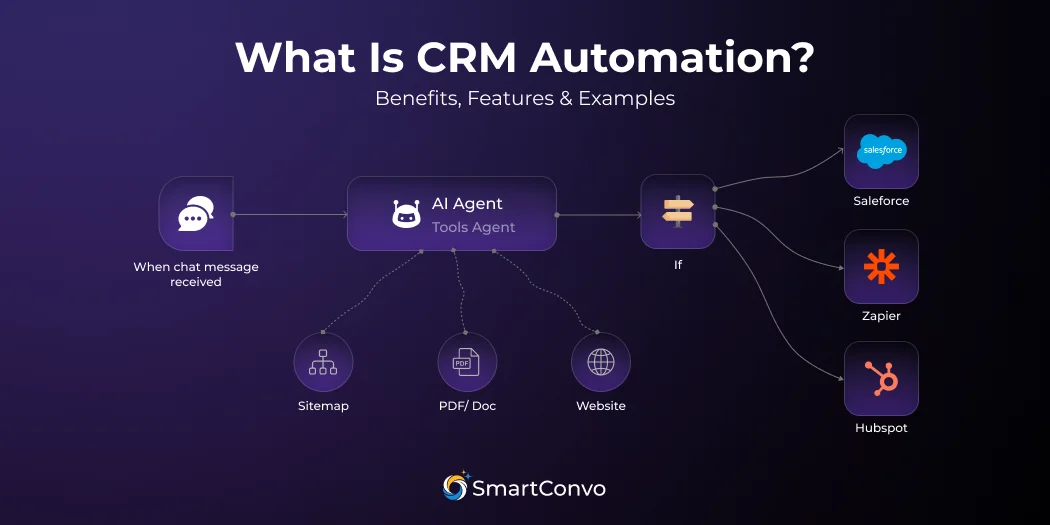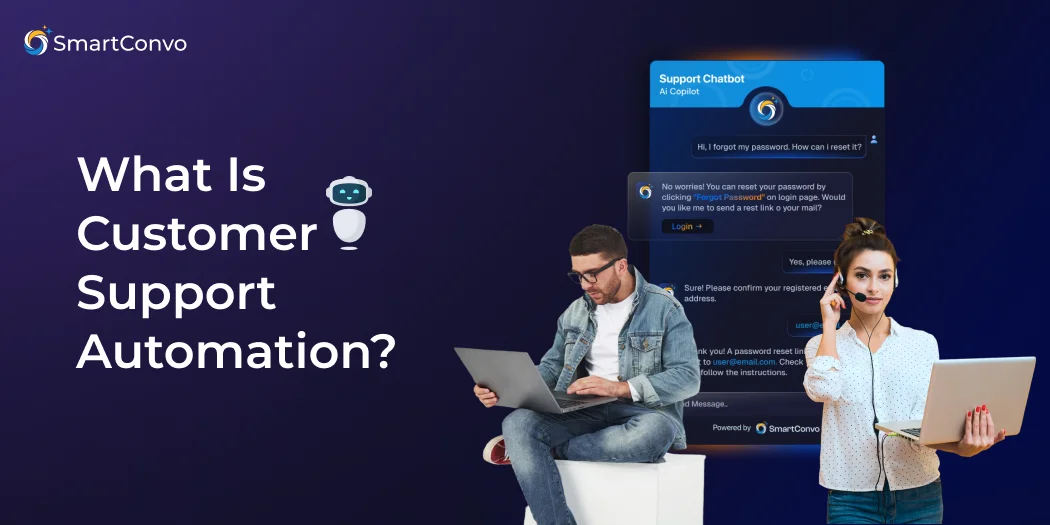Human Resource Management has always been a people-centric domain, but the integration of advanced technologies like generative AI is redefining the way HR operates. Generative AI in HR refers to the application of AI tools that can create, analyze, and optimize content and processes within HR functions. These tools go beyond basic automation, offering intelligent solutions to challenges such as recruitment, onboarding, employee engagement, and workforce planning.
For instance, generative AI can create tailored job descriptions, generate automated employee responses, and even design personalized training programs. By embedding AI in HR processes, companies can reduce manual workloads, increase productivity, and focus on creating meaningful employee experiences. With its ability to handle large datasets and provide actionable insights, AI HR assistants are proving invaluable for modern HR teams.
In this blog, we’ll explore how generative AI is transforming HR, its real-world applications, benefits, challenges, and future potential, and offer practical steps for adopting this groundbreaking technology.
What is Generative AI in HR?
Generative AI is a form of artificial intelligence capable of producing content, ideas, and solutions based on existing data. In the context of HR, GenAI in enterprise settings refers to the use of AI tools to enhance and automate HR functions like recruitment, employee onboarding, training, engagement, and performance management.
For example, generative AI can create tailored job descriptions, suggest personalized training paths, and even analyze employee feedback to improve workplace culture. Unlike traditional automation tools, which are task-specific, generative ai for human resources provides creative, adaptive, and data-driven solutions that empower HR professionals to focus on strategic goals rather than repetitive tasks.
By leveraging AI HR assistants and tools, HR teams can manage processes faster, improve decision-making, and provide personalized support to employees, all while maintaining a human-centric approach to workforce management.
The Impact of Generative AI on HR Management
The integration of generative AI into human resource management is redefining how HR teams operate, creating efficiencies, enhancing employee experiences, and enabling data-driven decision-making. Let’s dive deeper into the key areas where generative AI in human resources is leaving its mark:

Recruitment and Talent Acquisition
Recruiting the right talent is one of the most critical and time-consuming responsibilities of HR teams. Generative AI is revolutionizing the hiring process in several ways:
- Resume Analysis: AI tools can quickly analyze hundreds or thousands of resumes, identifying candidates with the skills, qualifications, and experience that align with job requirements.
- Candidate Screening: Virtual AI recruiters conduct initial screenings by asking candidates pre-set questions and evaluating their responses. This eliminates the need for HR teams to manually screen every application.
- Job Description Creation: Generative AI can draft detailed and tailored job descriptions that attract suitable candidates while ensuring inclusivity.
- Predictive Success Analysis: AI algorithms assess a candidate’s likelihood of succeeding in a role by analyzing their professional history, personality traits, and skills.
- Faster Recruitment Cycles: By automating repetitive tasks, AI reduces the time taken to hire, helping organizations secure top talent quickly.
By using generative AI, HR professionals can focus more on building relationships with candidates and less on administrative tasks, ensuring a seamless and engaging recruitment experience.
Enhanced Employee Engagement
Employee engagement is key to retaining talent and fostering a positive culture. Generative AI, with conversational AI, helps HR teams connect through personalized communication, quickly addressing queries and enhancing employee satisfaction.
- 24/7 Query Resolution: AI-powered chatbots and virtual assistants respond to employee questions—ranging from payroll queries to leave policies—in real time, offering instant support regardless of time zones.
- Personalized Communication: AI tools analyze employee preferences and behaviors to send personalized messages, such as reminders for training sessions or wellness programs.
- Feedback Collection: Generative AI can gather, process, and analyze employee feedback through surveys, identifying areas for improvement and boosting engagement.
- Employee Recognition Programs: AI suggests personalized recognition and rewards based on employee performance data, creating a culture of appreciation.
By ensuring employees feel heard, supported, and valued, generative AI HR solutions significantly enhance engagement and satisfaction across the workforce.
Improved Decision-Making
Generative AI empowers HR teams with actionable insights, allowing them to make informed and proactive decisions:
- Predictive Analytics: AI predicts trends such as employee turnover, enabling HR teams to implement retention strategies before issues arise.
- Performance Tracking: Generative AI identifies high-performing employees and those needing additional support, enabling targeted interventions.
- Workforce Planning: AI analyzes business needs, market trends, and employee data to help HR forecast future talent requirements and allocate resources effectively.
- Diversity and Inclusion Insights: AI tools analyze hiring and promotion data to identify gaps in diversity and inclusion efforts, offering actionable recommendations.
The ability to base decisions on data rather than assumptions leads to better outcomes for both employees and organizations.
Personalized Learning and Development
Generative AI helps HR teams create tailored learning paths for employees, ensuring that professional growth aligns with individual goals and organizational needs:
- Customized Training Plans: AI assesses an employee’s skills, performance, and career goals to recommend specific training modules or courses.
- Adaptive Learning Experiences: AI-powered platforms adjust the difficulty and content of training materials based on an employee’s progress and learning style.
- Skill Gap Analysis: Generative AI identifies skill gaps in teams and suggests training programs to address them, ensuring the workforce stays competitive.
- Real-Time Feedback: AI monitors employee participation in training programs and provides instant feedback to improve learning outcomes.
- Cross-Department Knowledge Sharing: AI fosters collaboration by identifying employees with complementary skills and encouraging knowledge-sharing initiatives.
By focusing on individual needs, generative AI ensures employees feel supported in their development, boosting productivity and job satisfaction.
Efficient Compliance Management
Managing compliance is a critical yet tedious aspect of HR. Generative AI simplifies this process, ensuring accuracy and up-to-date practices:
- Policy Management: AI tools review and update compliance policies to align with the latest regulations, reducing the risk of non-compliance.
- Automated Documentation: AI streamlines the creation and management of documents like employment contracts, confidentiality agreements, and HR policies, ensuring accuracy and reducing administrative burden.
- Audit Preparation: AI prepares detailed compliance reports and maintains records in an organized manner, making audits faster and less stressful.
- Real-Time Monitoring: Generative AI monitors organizational practices in real time, flagging potential compliance issues and providing recommendations for corrective actions.
By automating compliance tasks, AI reduces human error, saves time, and ensures organizations adhere to legal and regulatory standards.
Real-World Applications and Use Cases
Generative AI HR use cases are revolutionizing the industry by streamlining processes, improving efficiency, and enhancing decision-making across various HR functions.

Recruitment and Candidate Screening
Generative AI speeds up the hiring process by quickly analyzing resumes and identifying candidates that match job requirements. It also automates interview scheduling and generates personalized outreach messages, improving candidate engagement and reducing recruitment cycles.
Onboarding and Training
AI customizes onboarding plans for new hires and offers 24/7 support via HR chatbot. It also personalizes training programs, adapting to each employee’s role, skill set, and learning pace, ensuring effective knowledge transfer and better employee experience.
Employee Feedback Analysis
Generative AI analyzes employee feedback, performing sentiment analysis to identify trends and extract actionable insights. This allows HR teams to address concerns like work-life balance or dissatisfaction promptly, improving overall workplace satisfaction.
Diversity and Inclusion Initiatives
Generative AI promotes unbiased hiring by analyzing resumes without unconscious biases. It also creates inclusive job descriptions and tracks diversity metrics, helping HR teams foster a more diverse and inclusive workplace.
HR Process Automation
AI automates routine HR tasks such as attendance management, performance reviews, payroll processing, and document handling. This reduces administrative overhead, allowing HR teams to focus on strategic initiatives.
Generative AI is driving HR efficiency by automating tasks, improving decision-making, and ensuring a more inclusive and productive work environment.
Benefits and Challenges Integrating of Generative AI in HR

Benefits of Generative AI in HR
1. Time Efficiency
Generative AI automates repetitive tasks, allowing HR professionals to focus on strategic initiatives like workforce planning and culture-building.
2. Enhanced Employee Experience
AI tools like AI HR assistants provide employees with instant answers and personalized support, improving satisfaction and engagement.
3. Data-Driven Insights
HR teams can use AI-generated reports to make informed decisions on hiring, training, and retention strategies.
4. Cost Savings
By automating administrative processes, generative AI reduces operational costs and increases overall efficiency.
5. Scalability
AI tools can handle large datasets, making them ideal for organizations with rapidly growing teams and operations.
Challenges with Generative AI in HR
1. Data Privacy and Security
Handling sensitive employee information requires strict adherence to data privacy laws and robust cybersecurity measures.
2. Bias in AI Models
If not properly designed, AI models can perpetuate biases present in training data, potentially leading to unfair hiring or promotion decisions.
3. Resistance to Change
HR teams and employees may resist adopting AI due to fears of job displacement or complexity in using new tools.
4. High Initial Investment
Implementing generative AI tools can be costly, especially for small and medium-sized businesses.
Future Trends in Generative AI for HR
Generative AI in HR is set to evolve with key trends that will significantly enhance HR functions. One trend is hyper-personalized employee experiences, where AI tailors every stage of the employee journey based on individual needs, improving engagement and satisfaction. Advanced AI-powered chatbots and virtual assistants will also handle complex HR tasks, such as performance evaluations and career counseling, offering employees more personalized support.
Predictive analytics will enable HR teams to anticipate workforce trends, like talent shortages and skills gaps, allowing businesses to proactively address challenges. Additionally, AI for enterprise will integrate seamlessly with existing tools, improving cross-departmental collaboration and boosting overall efficiency.
Finally, as Gen AI in HR becomes more integrated, there will be a stronger emphasis on ethical practices, ensuring fairness and transparency in AI-driven processes. These trends will enhance the value of generative AI in HR, driving greater efficiency and inclusivity.
Practical Steps to Adopt Generative AI in HR
To successfully adopt generative AI in HR, start by identifying key pain points within HR functions, such as recruitment, onboarding, or employee support, that could benefit most from AI solutions. Once the areas are identified, select AI tools that align with your organization’s needs, evaluating their features, scalability, and compatibility with existing systems.
Next, invest in training HR professionals to ensure they are equipped to use the AI tools effectively. Implement AI gradually, starting with pilot projects to test its impact before scaling it across the organization. It’s essential to adopt robust security measures to protect employee data and comply with privacy regulations.
Finally, continuously monitor the performance of AI tools, collect feedback, and make adjustments as needed to optimize their effectiveness. By following these steps, businesses can integrate generative AI in HR and unlock its full potential for efficiency and productivity.
No Credit Card Required | 14 days Free Trial
Build Your Chatbot
Conclusion
Generative AI is more than just a trend—it’s a game-changer for HR. By automating tasks, personalizing experiences, and delivering actionable insights, generative AI in HR is enabling businesses to create more efficient and engaging workplaces.
AI-driven chatbots, such as LLM chatbots, will continue to evolve, providing smarter and more intuitive support to employees. Additionally, the integration of AI chatbot benefits into HR processes will further streamline operations and improve employee satisfaction.
While challenges like data privacy and bias need careful attention, the benefits of adopting generative AI far outweigh the hurdles. From recruitment and onboarding to employee engagement and compliance, the potential applications are vast, and the opportunities are endless.
As organizations embrace AI for HR professionals, they’re not just upgrading their processes—they’re transforming how they manage, engage, and empower their workforce. The future of HR is here, and it’s powered by generative AI.
Frequently Asked Questions (FAQ)
Generative AI is revolutionizing HR by automating repetitive tasks, improving recruitment accuracy, personalizing employee experiences, and enhancing decision-making through predictive analytics.
Applications include candidate screening, personalized onboarding, employee feedback analysis, diversity initiatives, and automating HR processes like payroll and compliance management.
Generative AI boosts efficiency, reduces hiring biases, enhances employee engagement, enables data-driven decisions, and provides personalized learning and development opportunities.
Challenges include data privacy concerns, the need for ethical AI practices, initial implementation costs, and training HR teams to effectively use AI tools.
HR teams can begin by identifying pain points, selecting suitable AI tools, providing training for staff, implementing AI solutions in stages, and continuously monitoring and optimizing the tools for better results.













